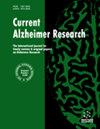全面了解阿尔茨海默病的病理生理学:缓解神经变性的草药方法
IF 1.9
4区 医学
Q3 CLINICAL NEUROLOGY
引用次数: 0
摘要
:阿尔茨海默病是一种进行性神经退行性疾病,以认知能力下降、记忆力减退和功能障碍为特征。尽管进行了广泛的研究,但确切的病因仍然难以捉摸。本综述探讨了 AD 的多方面病理生理学,重点关注胆碱能假说、高磷酸化 Tau 蛋白和淀粉样蛋白 β 假说、氧化应激假说和金属离子假说等关键假说。了解这些机制对于制定有效的治疗策略至关重要。目前治疗注意力缺失症的方法存在局限性,这促使人们探索包括草药干预在内的替代方法。针对胆碱能假说的胆碱酯酶抑制剂在控制症状方面显示出一定的疗效。阻断淀粉样蛋白 β [Aβ]和针对高磷酸化 tau 蛋白的药物正在研究中,但在临床试验中成效有限。与注意力缺失症病理有关的氧化应激导致了对抗氧化剂的研究。石榴、黄芩和莪术等天然产品已证明具有抗氧化特性和抗炎作用,可提供潜在的神经保护功效。银杏叶、猴面包树和睡莲等几种草药提取物已在临床前研究中显示出前景。Huperzine A、Melatonin 和 Bryostatin 等化合物通过各种机制(包括胆碱能调节和抗炎特性)显示出神经保护作用。然而,使用草药治疗注意力缺失症面临着一些限制,包括标准化问题、生物利用度不稳定以及与常规药物的潜在相互作用。此外,许多草药产品的疗效和安全性仍有待通过严格的临床试验来确定。本综述还重点介绍了目前正在进行临床试验的白藜芦醇和高牛磺酸等前景看好的天然产品,以及它们对AD进展的潜在影响。欧米伽-3 脂肪酸 DHA 已显示出对认知的益处,而尼古丁的神经保护作用也在探索之中。总之,全面了解注意力缺失症复杂的病理生理学并探索草药干预措施,为控制这种毁灭性疾病提供了一种综合方法。未来的研究应解决与草药相关的局限性,并进一步评估有前景的天然产品在临床环境中的疗效。本文章由计算机程序翻译,如有差异,请以英文原文为准。
Comprehensive Insights into Pathophysiology of Alzheimer's Disease: Herbal Approaches for Mitigating Neurodegeneration
: Alzheimer's disease [AD] is a progressive neurodegenerative disorder characterized by cognitive decline, memory loss, and functional impairment. Despite extensive research, the exact etiology remains elusive. This review explores the multifaceted pathophysiology of AD, focusing on key hypotheses such as the cholinergic hypothesis, hyperphosphorylated Tau Protein and Amyloid β hypothesis, oxidative stress hypothesis, and the metal ion hypothesis. Understanding these mechanisms is crucial for developing effective therapeutic strategies. Current treatment options for AD have limitations, prompting the exploration of alternative approaches, including herbal interventions. Cholinesterase inhibitors, targeting the cholinergic hypothesis, have shown modest efficacy in managing symptoms. Blocking Amyloid β [Aβ] and targeting hyperphosphorylated tau protein are under investigation, with limited success in clinical trials. Oxidative stress, implicated in AD pathology, has led to the investigation of antioxidants. Natural products, such as Punica granatum Linn, Radix Scutellariae, and Curcuma longa have demonstrated antioxidant properties, along with anti-inflammatory effects, offering potential neuroprotective benefits. Several herbal extracts, including Ginkgo biloba, Bacopa monnieri, and Withania somnifera, have shown promise in preclinical studies. Compounds like Huperzine A, Melatonin, and Bryostatin exhibit neuroprotective effects through various mechanisms, including cholinergic modulation and anti-inflammatory properties. However, the use of herbal drugs for AD management faces limitations, including standardization issues, variable bioavailability, and potential interactions with conventional medications. Additionally, the efficacy and safety of many herbal products remain to be established through rigorous clinical trials. This review also highlights promising natural products currently in clinical trials, such as Resveratrol and Homotaurine, and their potential impact on AD progression. DHA, an omega-3 fatty acid, has shown cognitive benefits, while Nicotine is being explored for its neuroprotective effects. In conclusion, a comprehensive understanding of the complex pathophysiology of AD and the exploration of herbal interventions offer a holistic approach to managing this devastating disease. Future research should address the limitations associated with herbal drugs and further evaluate the efficacy of promising natural products in clinical settings.
求助全文
通过发布文献求助,成功后即可免费获取论文全文。
去求助
来源期刊

Current Alzheimer research
医学-神经科学
CiteScore
4.00
自引率
4.80%
发文量
64
审稿时长
4-8 weeks
期刊介绍:
Current Alzheimer Research publishes peer-reviewed frontier review, research, drug clinical trial studies and letter articles on all areas of Alzheimer’s disease. This multidisciplinary journal will help in understanding the neurobiology, genetics, pathogenesis, and treatment strategies of Alzheimer’s disease. The journal publishes objective reviews written by experts and leaders actively engaged in research using cellular, molecular, and animal models. The journal also covers original articles on recent research in fast emerging areas of molecular diagnostics, brain imaging, drug development and discovery, and clinical aspects of Alzheimer’s disease. Manuscripts are encouraged that relate to the synergistic mechanism of Alzheimer''s disease with other dementia and neurodegenerative disorders. Book reviews, meeting reports and letters-to-the-editor are also published. The journal is essential reading for researchers, educators and physicians with interest in age-related dementia and Alzheimer’s disease. Current Alzheimer Research provides a comprehensive ''bird''s-eye view'' of the current state of Alzheimer''s research for neuroscientists, clinicians, health science planners, granting, caregivers and families of this devastating disease.
 求助内容:
求助内容: 应助结果提醒方式:
应助结果提醒方式:


